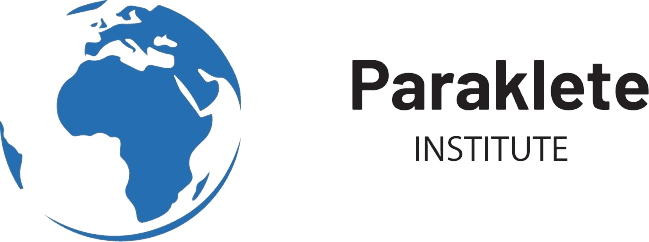Professional Scrum Product Owner™ Certifications

Student Ratings & Reviews

-
LevelIntermediate
-
Last UpdatedMarch 27, 2024
Professional Scrum Product Owner™ Certifications

Student Ratings & Reviews

-
LevelIntermediate
-
Last UpdatedMarch 27, 2024
Professional Scrum Product Owner™ Certifications
Validate and certify their understanding of the accountabilities of the Product Owner
Product Description
What is a Professional Scrum Product Owner™
Professional Scrum Product Owners demonstrate the knowledge and understanding of Scrum, the Product Owner role and their ability to apply that knowledge in real-world situations. The value of certification is intimately tied to the demonstration of knowledge needed to achieve it. By that measure, the PSPO assessments are significantly more valuable than available alternatives for Scrum Product Ownership. And, we strive to ensure that they remain valuable and relevant through frequent inspection and adaptation of the assessment content.
About this course
Prove Your Knowledge of Product Ownership.
The Product Owner is pivotal to bridging business strategy and product execution in order to help the Scrum Team create valuable products.
The Professional Scrum Product Owner™ (PSPO I) certification validates your knowledge of the Scrum framework and your ability to support and enable value creation and delivery.
Earning PSPO I shows your understanding of how to bridge the gap between strategy and agile product management in order to create valuable products using Scrum.
In this two day class* students will develop and solidify their knowledge of the Scrum framework and the accountabilities of being a Product Owner through instruction and team-based exercises. Students learn techniques that they can use to help them overcome the challenges that are often encountered on a day-to-day basis. They will do this while learning better ways to work with the organization, stakeholders, customers and their team to provide greater value in the product being delivered.
Course Syllabus
PSPO I includes questions from the following Focus Areas as defined in the Professional Scrum Competencies.
- Understanding and Applying the Scrum Framework:
- Empiricism, Scrum Team, Events, Artifacts, Done
- Developing People and Teams:
- Self-Managing Teams
- Managing Products with Agility:
- Forecasting & Release Planning, Product Vision, Product Value, Product Backlog Management, Business Strategy, Stakeholders & Customers
Course Learning Objectives
- Increase business agility through the proper execution of the Product Owner role
- Recognize the value of a product over project mindset
- Learn how to bridge business strategy to product execution using Scrum
- Understand that the Product Owner is an Agile Product Manager
- Understand the Scrum Principles and Empiricism
- Understand the Product Owner accountabilities on the Scrum Team
- Learn how to align the team around the business strategy, product vision, Product Goal, and Sprint Goal
- Find ways to effectively communicate the business strategy, product vision, and Product Goal
- Learn techniques for Product Backlog Management, Release Management, and Forecasting
- Identify metrics that can be used to track value creation, and successful product delivery
- Discover techniques to interact with stakeholders, customers, and the members of the Scrum Team
Who Should Attend this class?
This course is appropriate for students in any industry where teams are working to solve complex problems. The Professional Scrum Product Owner course is for:
- Professionals interested in starting a career as a Product Owner
- Product Owners with some experience in the role that are looking to improve their understanding or fix their misconceptions of Scrum and the Product Owner role
- Scrum Masters wishing to be an effective coach to Product Owners will also find valuable insights in this course
While this course covers an introduction to the Scrum framework, it’s primarily from the perspective of the Product Owner. Therefore, it’s best if the students come to the course with an understanding of the fundamentals of Scrum, ideally as demonstrated by passing the Scrum Open.
Certification Details
- $200 USD per attempt
- Passing score: 85%
- Time limit: 60 minutes
- Number of Questions: 80
- Format: Multiple Choice, Multiple Answer, True/False
- Free Credly digital credential included
- Practice assessments
- Passwords have no expiration date, but are valid for one attempt only
- Lifetime certification – no annual renewal fee required
- PMI PDU Credits. Students of Scrum.org courses are able to claim Project Management Institute (PMI) PDU credit: 14 PDUs after attending a two-day Professional Scrum Product Owner (PSPO) course.
Our Statement – Your Confidence
Paraklete Institute has qualified, globally authorized and licensed instructors in project management and agile methodologies training, with decades of experiences in several industry areas. Paraklete Institute’s course delivery philosophy is anchored on 3 pillar objectives:
- Mastery and Hands-On Application – Paraklete Institute’s training is adapted to developing your professionalism through practical delivery methodology that gives you confidence to face lifelong real-world challenges and perform excellently in your project role.
- Sound Professional Industry and Career Orientation with Global Relevance and Impact and Opportunities. With hundreds and thousands of agile and scrum certifications in the market today, learners are often stuck with the choice to make that will guarantee their end-goals. Paraklete’s experienced Learning Advisors will help shorten this decision curve and dilemma.
- High Certification Exam Success Rate – we have turn-key course contents and exam-tuning assessment tools like exam simulators that deliver near-exam experience, and this has placed our pass rates at 99%.
Course Syllabus
Introduction to PgMP credential exam
- PgMP credential exam overview
- Overview of application process
- Tips for Effective and Efficient learning
- Understanding the SPMv4 -standard and ECO (Examination Content Outline)
Introduction to Program Management
- Organization Vision and Mission
- Business value
- Organization Strategic planning
- Portfolios, Programs, Projects and Operations
- Decision making –Portfolio/Program/Project/Operations
- Program and Project distinctions
- Program Management
- Program Manager skills and competencies
- Program Management Office
- Introduction to Exam Content Outline (ECO)
- Practice questions
Program Management Performance Domains And Program Life Cycle
- Program Life Cycle
- Program Life Cycle gate pass criteria.
- Program management performance domains
- Program Management –Change cycle
- Practice questions
Program Strategic Alignment
- Introduction to Program strategic alignment
- Organizational strategy and program alignment
- Program selection by portfolio
- Strategic Plan
- Program Sponsor
- Program Definition phase dataflow and strategic alignment –dataflow
- Program Business case
- Program Charter
- Program Roadmap
- Environmental Factors Impact assessments
- Risk strategy alignment
- Strategic alignment -ECO tasks analysis and mapping
- Practice questions
Program Benefit management
- Outputs, Capability, Outcome, Benefit and dis-benefits
- Types of benefits
- Benefit delivery models
- Balanced scorecard
- Architecting the program
- Benefit management life cycle and program life cycle
- Benefit Identification phase
- Identifying Data, Metrics, Indicators, KPA, KPIs
- Benefit analysis and planning phase
- Benefit realization plan
- Benefit register
- Benefit delivery phase
- Benefits transition phase
- Benefit Sustenance phase
- Practice questions
Program Governance
- What is Program governance
- Differencebetween Governance and Management
- Program Governance -Responsibilities
- Typical program organisation set-up
- Program Governance -plan
- Change management
- Issue escalation
- Providing management oversight -Phase gate, health check and other decision point reviews
- Component Initiation andtransition
- Governance of components
- Practice questions
- ECO mapping to the Standard
Program Stakeholder engagement
- Program Stakeholder engagement
- Wants, needs and expectations
- Stakeholder identification
- Stakeholder analysis
- Stakeholder Register
- Stakeholder engagement strategies
- Stakeholder engagement planning
- Stakeholder engagement
- Resistancetriangle and pyramid
- Practice questions
Program Integration
- Review of Program Life cycle
- Program selection
- Program definition phase integration activities
- Program delivery phase integration activities
- Program closure phase integration activities
Program Management Supportive processes
- Program Communication management
- Program finance management
- Program resource management
- Program procurement management
- Program quality management
- Program scope management
- Program schedule management
- Program risk management
- Program information management
- Program change management
Exam Strategy / Analysis Workshop
- PgMP Exam application writing –Guidelines and tips
- Understanding ECO for exam
- Critical thinking skills and Exam question analysis
- Exam –Help points and Tips
- Exam taking –Strategy (per individual)
- Support throughout the engagement
- Question & Answer sessions (online, in groups)
- Mail / Phone Support
The PgMP Certification Requirement
- The PgMP has two assessments: a written panel review and a multiple choice exam.
- We have a wide range of study resources to set you up for success.
- Upon successfully completing the Panel Review Assessment, you'll be ready to schedule your exam.
Why is the PgMP Exam Different?
After your application is approved and payment is received, a panel of volunteer PgMP-certified program managers will assess your professional experience based on your responses to the Program Management Experience Summaries on the PgMP application.
Certification Details and Criteria
Eligibility for the PgMP Exam
Do you have real-world program management experience that’s led to success? Great—you’ve finished the hardest part. Before you apply, make sure you meet one of the following sets of PgMP Certification requirements:
PgMP certification is an essential professional requirement for senior project manager roles across all industries. The eligibility requirements for PgMP certification are:
PgMP certification exam fees for PMI members and non-members
Delivery Approaches
- Self-paced e-learning Path
- Online Bootcamp Virtual Instructor-led Package: 1month Accelerated (3weekends, Saturday & Sunday, 4pm -8:30pm)
- Online Virtual Instructor-led Comprehensive Mentorship Path: 3months (1 class/wk, 3 hours each)
- Onsite (In-Person; face-to-face) Bootcamp 1month Accelerated (3weekends, Saturday & Sunday, 4pm -8:30pm)
- Onsite (3-month) comprehensive Master Class Mentorship Path: 1 class session of 3hrs/week
- Onsite 4 day prep course


Saturday of Every Weekend New Class Begin
- 15-Day Speed Mentoring Challenge. Register Now
- 30-Day Speed Mentoring Challenge. Register Now. Register Now
- 45-Day Speed Mentoring Challenge. Register Now
- 90-Day Comprehensive Mentoring Challenge. Register Now
- MasterClasses – Online
Online Instructor led
Learning Option
Lorem ipsum dolor sit amet, consectetur adipiscing elit. Ut elit tellus, luctus nec ullamcorper mattis, pulvinar dapibus leo.
Eligibility
PMP certification is an essential professional requirement for senior project manager roles W across all industries. The eligibility requirements for PMP certification are:
Education
Nongraduates
Project Management Experience
5 years/7500 hours
Project Management Education
35 hours
Graduates
Project Management Experience
3 years/4500 hours
Project Management Education
35 hours
Course Fee
-
Online:
$364.00 -
Onsite:
$995.00
Related Courses
- PMP: Project Management Professional
- CAPM: Certified Associate in Project Management
- PMI-PgMP: Program Management Professional
- PMI-PfMP: Portfolio Management Professional
- PMI-PBA: Professional in Business Analysis
- PMI-RMP: Risk Management Professional
- PMI-ACP: Agile Certified Practitioner
- PMI-SP: Scheduling Professional
- PMI-DA: Disciplined Agile
- PMI-CP: Construction Professional
- PMI-OT: Organizational Transformation.
